
May 13, 2022, New York—The Human Rights Institute is pleased to announce the 2022 recipients of the Columbia Law School Human Rights Institute’s Commendation for Leadership and Commitment in Human Rights.
In recognition of their exceptional dedication to human rights at Columbia Law School and their leadership in the human rights field, the Institute honors ten inspiring graduating law students: Abdullahi Hassan Abdi, Anahi D. Mendoza, Brandon Vines, Dimitra Karakioulaki, Elizabeth White, Hillary Obinna Maduka, Inès Aurore Zamouri, Raisa Elhadi, Rawda Fawaz, and Ray Gdula.
Awardees were selected because of their valuable contributions to the human rights community at Columbia Law School. During their time as law students, they have mentored other students and undertaken activities in and out of the law school to advance human rights.
This year’s award recipients were nominated by their peers and selected by the Human Rights Institute Faculty and staff.
The Human Rights Institute congratulates Abdullahi, Anahi, Brandon, Dimitra, Elizabeth, Hillary, Inès, Raisa, Rawda, and Ray for their exceptional achievements. “This year’s recipients have contributed significantly to the human rights community at the law school and beyond through their scholarship, mentorship, and practice,” reflected Jessica Pierson, Assistant Director of Programs at the Institute. “We are grateful to have worked with and learned alongside the awardees during their time at Columbia, and are inspired by the commitment they have shown to advancing dignity and rights globally.
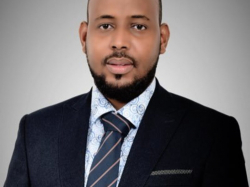
Abdullahi Hassan ‘22 LL.M. is a Kenyan lawyer and a human rights researcher and advocate. Abdullahi was an LL.M. Human Rights Fellow, a human rights clinic student, and a recipient of the Jane Marks Murphy Prize. At Columbia Law school, Abdullahi contributed to several panel discussions about his work with Amnesty International as their Conflict and Somalia researcher. There, he carried out complex research into various human rights topics including the impact of US drone strikes on civilians, violations of freedom of expression as well as the impact of COVID-19 on Somalia’s healthcare system. Abdullahi previously worked for several years in the Africa Division of Human Rights Watch and holds a Bachelor of Laws degree from the University of Nairobi.
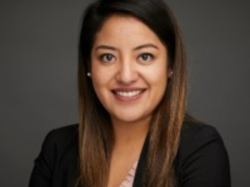
Anahi Mendoza ‘22 J.D. came to Columbia Law with a deep interest in advancing immigrants’ rights having founded a non-profit organization dedicated to providing deportation defense services in California. As a 1L, Anahi participated in the Asylum and Refugee Moot Court and spent her summer working on voting and immigrants' rights cases at the Mexican American Legal Defense and Education Fund (MALDEF). During her 2L year, she joined the Immigrants' Rights Clinic where she represented an Egyptian asylum seeker and individuals detained at the Irwin County Detention Center in Georgia. That summer, she also joined Neufeld Scheck & Brustin where she worked to advance the rights of those who have been wrongfully convicted via 1983 litigation. Anahi went on to serve as the Editor-in-Chief of Volume 53 of the Columbia Human Rights Law Review dedicated to publishing legal analysis and discussion of civil liberties and human rights under both international and domestic law. After graduation, Anahi will clerk on the U.S. Court of Appeals for the First Circuit.
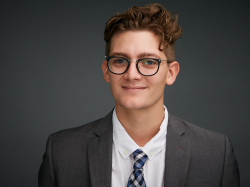
Brandon Vines ’22 J.D. focuses on challenging wrongful state violence domestically and internationally with a particular emphasis on open-source investigation. At CLS, he participated in the 1L Advocates Program, served as a 1L assistant to the Human Rights Clinic, and spent his 2L year working on the Clinic’s Central African Republic war crimes accountability project. Brandon has also served as the coach of the Immigrant and Refugee Rights Moot Court, Executive Articles Editor of the Columbia Human Rights Law Review and Jailhouse Lawyer’s Manual, co-president of Columbia Law School Public Defenders, the Rightslink board, and board president of the Public Interest Law Foundation. He has also supported post-conflict truth-finding in the Central African Republic as a member of the Human Rights Clinic. For his 1L summer, Brandon was a Stevens Fellow with the Federal Defenders for the Middle District of Alabama. He spent the first half of his 2L summer as a capital intern with the Georgia Resource Center and the second half with WITNESS. During his 3L year, Brandon joined the WITNESS Policing Project as a legal fellow. Brandon is an inaugural Public Interest / Public Service Fellow, Racial and Social Justice Fellow, Academic Scholar Fellow, and James Kent Scholar. Following graduation, he will join Human Rights Watch as the incoming Leonard H. Sandler Fellow.
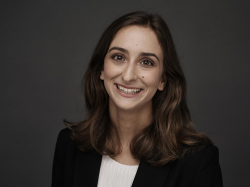
Dimitra Karakioulaki ‘22 LL.M. completed her undergraduate law studies at Aristotle University of Thessaloniki (AUTH) and Heidelberg University (Erasmus student) and she holds an LL.M. degree in Business Law from the National and Kapodistrian University of Athens, where she studied as a Konrad Adenauer Stiftung Scholar. During her studies at CLS, Dimitra served as a Research Assistant at the Human Rights Institute, working on projects concerning the decolonization of human rights and the nexus between justice, human rights, and peacebuilding. She also worked for the TrialWatch project, focusing on LGBTQ+ issues. Additionally, she served as a Policy Fellow at Accountability Counsel, assisting the efforts of the Organization to enhance access to justice for people harmed by internationally financed projects. She also worked as a Researcher for the Commission of Inquiry for Cambodia, where she focused on extrajudicial killings and rule of law issues. She has recently been involved in a project concerning investigations and fact-finding in Ukraine.
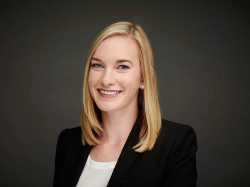
Elizabeth (Liz) White ’22 J.D. has dedicated her time at law school to the study of international criminal law. In her final year of law school, Liz earned an LL.M. in International Criminal Law at the University of Amsterdam, and authored her master’s thesis on the need for increased standardization in the use of user-generated open-source evidence in international criminal investigations. At CLS, Liz was the Head Notes Editor of the Columbia Journal of Transnational Law and published her note on the digitization of international criminal law in the wake of COVID-19. She also served as a teaching assistant to Professor Lori Damrosch’s International Law course and as a research assistant to Anjli Parrin, developing a fact-finding manual for use in international investigations. She was a member of the European Law Moot Court team, on the Professional Development Committee of the Columbia Society for International Law, and on the Research Committee of Rightslink. During her 1L summer, she interned with the Office of the Prosecutor of the International Residual Mechanism for Criminal Tribunals. Liz received the Parker School Recognition of Achievement in International Law and was a Harlan Fiske Stone Scholar. After graduation, Liz will return to work at Debevoise & Plimpton LLP, with a focus on international disputes resolution.
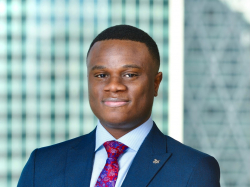
Hillary Obinna Maduka ’21 LL.M. was a Human Rights Fellow, a Harlan Fiske Stone Scholar, a Baker Mckenzie scholarship recipient, and a Parker School Certificate for Achievement in International Law awardee. As a member of the Human Rights Clinic he worked in the Bringing Human Rights Home - U.S. Project team to advance the rights of rural communities to adequate and affordable sanitation. Within the CLS community, Hillary received the Davis Polk Leadership Initiative award, which offered him a grant to bring experienced human rights attorneys and activists who have dedicated their lives and careers to leading positive change and have attained excellence over time, to share anecdotes from their experiences with students and discuss critical but nuanced aspects of a law career that are essential for success as a human rights or public interest attorney.
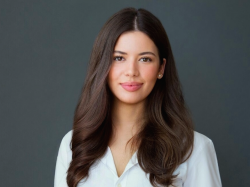
Inès Aurore Zamouri ‘22 LL.M. is a French and Tunisian human rights and social justice advocate. At Columbia, she focused on issues related to criminal justice, women’s rights, and racial justice. She was on the Research Committee at Rightslink, where she connected the CLS community with pro bono research opportunities related to human rights, did outreach to NGOs, and set up research projects. Inès sat on the Board of First Generation Professionals, supporting and advocating on behalf of first-generation and low-income students, especially those looking into the public interest sector. She externed at the Center for Popular Democracy where she worked on several progressive campaigns to end the school-to-prison-and-deportation pipelines. Inès presented her academic research work at the CLS Human Rights Symposium. Inès is graduating as a James Kent Scholar.
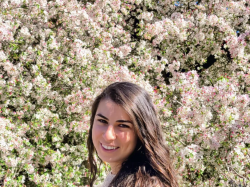
Raisa Elhadi ‘22 J.D. has engaged in human rights work across various practice areas and geographic locations both before and during law school, including teaching refugees in Beirut, Lebanon, working on advocacy to free Palestine and against the continued incarceration of prisoners at Guantanamo at the Center for Constitutional Rights, and, most recently, capital defense work with Phillips Black as a Pro Bono Scholar. After law school, she will combine these experiences and passions to work with capital clients in the Middle East through a fellowship at Reprieve.
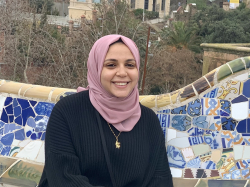
Rawda Fawaz '22 J.D. entered Columbia Law School as a 1L Human Rights Advocates Fellow, and has devoted most of her time at Columbia working on advancing human rights and socio-economic justice both domestically and internationally. Rawda has worked with the Human Rights Clinic for the entirety of her time in law school. As a 1L, she was a research assistant with the clinic's project on disparities in accessing higher education in Kashmir. During her 2L year, she rejoined the Kashmir project, and worked closely with partners to advance research and advocacy for the right to higher education. As a 3L, she helped supervise the Kashmir project, and also joined the Mass Graves team in the clinic, participating in forensic and data analysis for mass graves investigations. During her time in law school, Rawda was also co-president of Rightslink and the Muslim Law Students Association, and president of Columbia Law Students for Palestine. She was also a staff editor on the Human Rights Law Review and Jailhouse Lawyers Manual, and a member of the European Law Moot Court. Rawda served as a student caseworker with the International Refugee Assistance project for 3 years focusing on an ongoing refugee resettlement case. Rawda interned with Human Rights First and the Texas Defender Service her 1L summer and with Debevoise and Plimpton her 2L summer where she focused on International Dispute Resolution. She is also a Harlan Fiske Stone Scholar, and a 2022 winner of the Jane Marks Murphy Prize.
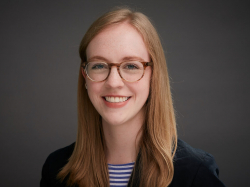
Ray Gdula ’22 J.D. arrived at Columbia Law School committed to pursuing a public interest career. Ray was involved in the Human Rights Clinic for their entire time at Columbia Law School, first as a research assistant and later as a student advocate. While in the clinic, Ray worked with Yemeni partners at Mwatana for Human Rights to conduct UN advocacy on economic, social, and cultural rights violations during the conflict in Yemen and led a workshop to expand Mwatana’s capacity to investigate violations of the right to food. They also developed an interview guide for Mwatana’s field researchers on collecting evidence of right to food violations and drafted educational materials on transitional justice for Yemeni community groups. As a legal intern at Oxfam America, Ray devised advocacy strategies to hold corporations accountable for land grabs in South America. Additionally, Ray advanced human rights within the Columbia Law School community by creating the Preferred Name Guide, which future law students will be able to use to ensure that their peers and professors address them by their preferred names. Ray was also a Managing Editor of the Columbia Human Rights Law Review and a Harlan Fiske Stone Scholar. After graduation, Ray will join the New York State Offices of the Inspector General as an Excelsior Fellow.
###
The Human Rights Institute advances international human rights through education, advocacy, fact-finding, research, scholarship, and critical reflection. We work in partnership with advocates, communities, and organizations pushing for social change to develop and strengthen the human rights legal framework and mechanisms, promote justice and accountability for human rights violations, and build and amplify collective power.
Founded in 1998 by the late Professor Louis Henkin as the anchor for human rights within Columbia Law School, the Human Rights Institute promotes engagement and knowledge of human rights within the law school, throughout the University, and around the world. Across the many substantive areas of its work, the Institute builds bridges between scholarship and activism, develops capacity within the legal community, engages governments, and models new strategies for progress.
Join us on Facebook: Columbia Law School and Human Rights Institute
Follow us on Twitter: @columbialaw and @CLSHumanRights
